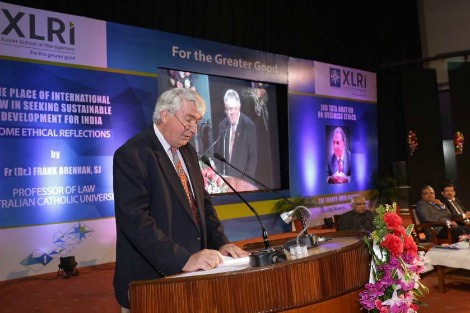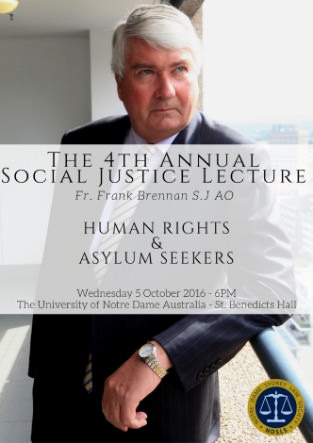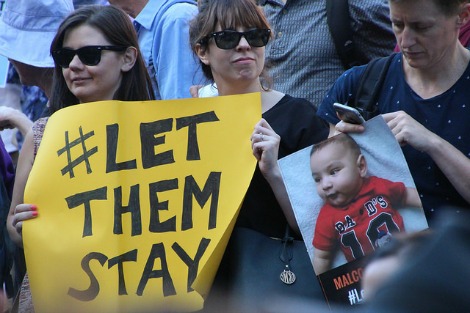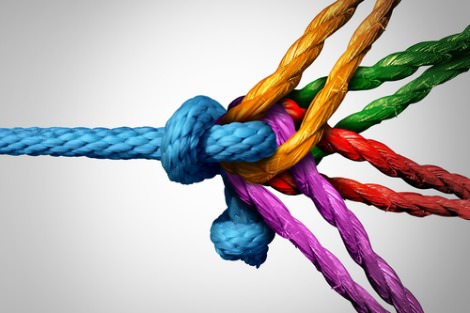Keywords: Catholic Health Care
There are more than 200 results, only the first 200 are displayed here.
-

ENVIRONMENT
- Frank Brennan
- 02 December 2016
9 Comments
Neither India nor Australia can go it alone when confronting a global issue such as climate change. India cannot disregard the effects on other nations when it adopts laws and policies for alleviating the poverty of the poorest of the poor. Australia cannot disregard the effects on other nations when it considers restricting the availability of resources for export such as coal which might help provide electricity for the world's poorest citizens.
READ MORE 
-

ENVIRONMENT
- Frank Brennan
- 28 November 2016
'No matter what the economic, political and legal problems confronted by modern day India, our response can be improved by an application of the key principles and norms developed in the international law of trade and human rights, helping to enunciate the realm of law, regulation and political accountability, enhancing public scrutiny providing the right environment for doing business.' Frank Brennan presents the 25th JRD Tata Oration, Xavier School of Management, Jamshedpur, India, 26 November 2016.
READ MORE
-

RELIGION
Two days after his election, the communications team of General Congregation 36 sat down with Father General Arturo Sosa to discuss his life and thought. The conversation introduces the new Superior General in a way that is more personal, to Jesuits and the wider Ignatian family around the world.
READ MORE
-

AUSTRALIA
- Samuel Dariol
- 19 October 2016
9 Comments
A policy that deliberately inflicts harm on one group of people to deter others from coming to Australia is ethically obnoxious. It is now time to bring the people detained offshore to Australia. The Australian Catholic bishops have promised the resources of Catholic organisations to help educate the children, care for the health and meet other needs of the people who are detained. When a significant sector of the community is ready to help care for vulnerable people, it is proper to allow them to do so.
READ MORE 
-

INTERNATIONAL
- Duncan MacLaren
- 07 October 2016
33 Comments
The new situation was rammed home to me in a recent trip to a conference in Salamanca, where there is a Scottish seminary, and Madrid, where I have Spanish friends. Everyone I met was shocked at the news and it was as if there had been a death in the family. On the flight back to Edinburgh, it became clear to me that the Brexiteers were about to take my European nationality away from me and replace it with a Little Englander mentality that sees foreigners through a prism of otherness
READ MORE 
-

AUSTRALIA
- Frank Brennan
- 06 October 2016
8 Comments
Australia's policy is unique and unrepeatable by other nations because it requires that you be an island nation continent without asylum seekers in direct flight from the countries next door and that you have access to a couple of other neighbouring island nations which are so indigent that they will receive cash payments in exchange for warehousing asylum seekers and proven refugees, perhaps indefinitely. The policy over which Turnbull presides is not world best practice. It's a disgrace.
READ MORE
-

RELIGION
- Frank Brennan
- 23 September 2016
18 Comments
'No good will be served by a royal commission auspiced by the state telling a Church how it judges or complies with its theological doctrines and distinctive moral teachings. By all means, set universal standards of practice expected of all institutions dealing with children, but do not trespass on the holy ground of religious belief and practice.' Fr Frank Brennan SJ addresses the Freedom for Faith Conference in Melbourne, 23 September 2016.
READ MORE
-

EDUCATION
- Peter Hosking
- 19 September 2016
3 Comments
Australia is now planning for an economy that has more elderly people. Death rates are declining and life expectancy is increasing. Our population should reach 36 to 40 million by 2050; the number of Australians aged 65 and over will go from 3.5 million to 9 million. In 1970 we had 29 per cent of the population under 15 and 8 per cent over 65. In 2050 we will have about 17 per cent under 15 and 23 per cent over 65. We need to plan to help the next generation care for the generation above them.
READ MORE 
-

AUSTRALIA
- Marcelle Mogg
- 05 May 2016
18 Comments
Even the International Monetary Fund recognises that the best way to grow an economy is to reduce the divide between rich and poor, ensuring that all people have a chance to participate in the social and economic life of a country. The Coalition government remains resolutely opposed to this growing body of evidence, continuing to rely on economic structures that entrench disadvantage, then blame the poor for their fate. The Budget provides tax cuts to the rich and service cuts to the rest.
READ MORE 
-

AUSTRALIA
- Andrew Hamilton
- 11 February 2016
15 Comments
The High Court decision on detention in Nauru came down just before the Christian season of Lent. It left the government free and determined to deport many young mothers and children to Nauru. For the mothers and children deportation will bring new trauma with renewed threat to their already precarious mental health. For the Australian public it again makes us ask what brutality, even to children, we are ready to tolerate. The savagery of this treatment is a suitable subject for Lenten reflection.
READ MORE 
-

AUSTRALIA
- Irfan Yusuf
- 25 January 2016
11 Comments
I arrived in Australia at the ripe old age of five months. I learned Australian values by a process of gentle osmosis. Many Indigenous Australians learned these values in a less gentle fashion. Today, many Australian Jews show a strong loyalty to the world's only Jewish state. Others combine loyalties with other ancestral homelands. Australian Muslims, Catholics, Buddhists and Hindus have similar broadened loyalties. Exactly how such loyalties make them any less Australian beats me.
READ MORE 
-

AUSTRALIA
- Frank Brennan
- 10 December 2015
I first met this Tony on my regular visits here to Darwin when he was working at the North Australian Aboriginal Legal Aid Service and then when he set up the mediation services under the auspices of Anglicare. In later years I knew him when he was your Anti-Discrimination Commissioner. He was a quiet, considered, gentle, strong and principled man. On Human Rights Day, it is only fitting that I honour Tony by offering some reflections on the architecture for human rights in Australia, on the contemporary human rights controversies, and on the way forward for better protection of the human rights of Aborigines and asylum seekers, two marginalised groups who had a special claim on Tony's sympathies.
READ MORE